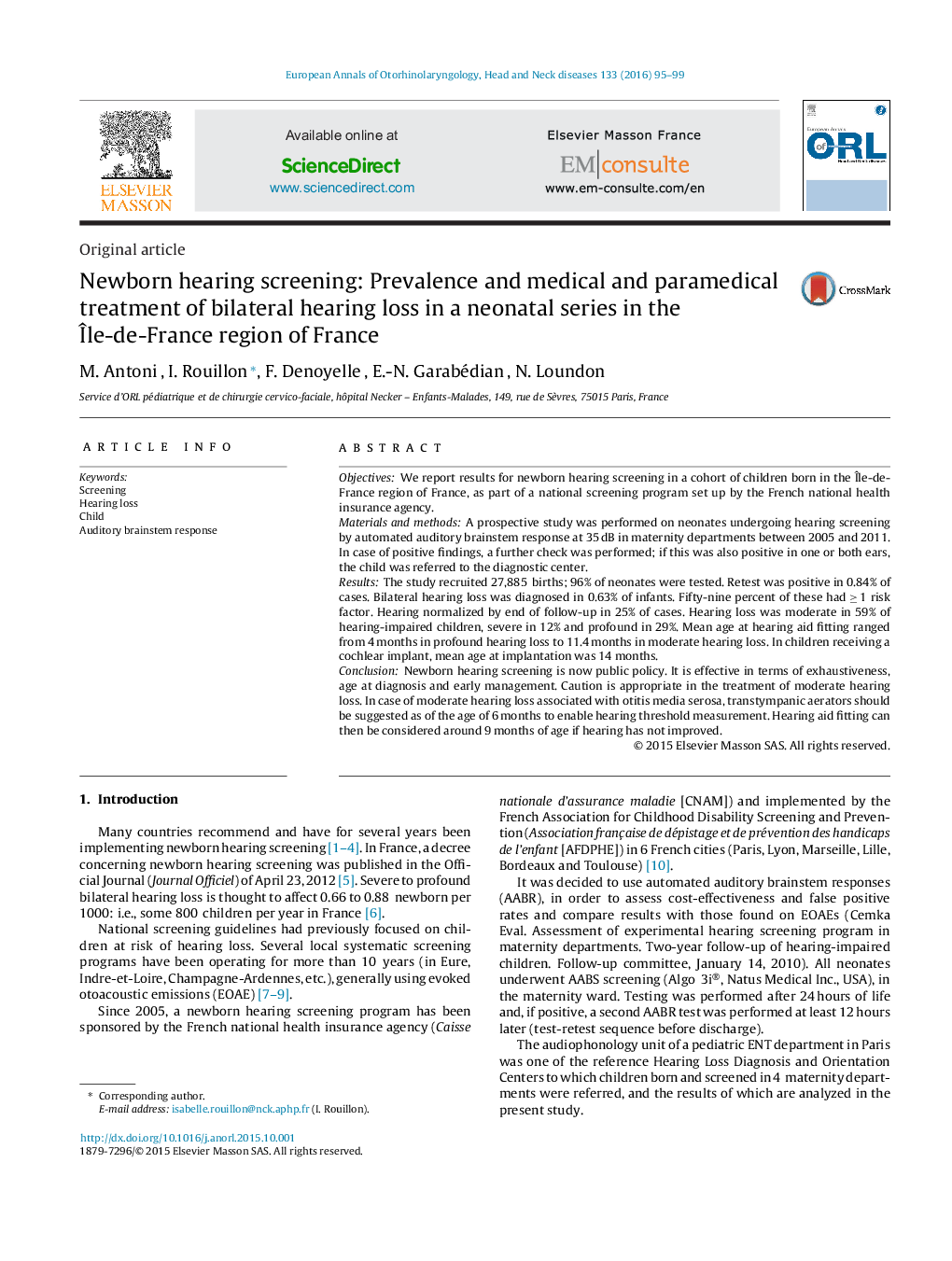| Article ID | Journal | Published Year | Pages | File Type |
|---|---|---|---|---|
| 4109889 | European Annals of Otorhinolaryngology, Head and Neck Diseases | 2016 | 5 Pages |
ObjectivesWe report results for newborn hearing screening in a cohort of children born in the Île-de-France region of France, as part of a national screening program set up by the French national health insurance agency.Materials and methodsA prospective study was performed on neonates undergoing hearing screening by automated auditory brainstem response at 35 dB in maternity departments between 2005 and 2011. In case of positive findings, a further check was performed; if this was also positive in one or both ears, the child was referred to the diagnostic center.ResultsThe study recruited 27,885 births; 96% of neonates were tested. Retest was positive in 0.84% of cases. Bilateral hearing loss was diagnosed in 0.63% of infants. Fifty-nine percent of these had ≥ 1 risk factor. Hearing normalized by end of follow-up in 25% of cases. Hearing loss was moderate in 59% of hearing-impaired children, severe in 12% and profound in 29%. Mean age at hearing aid fitting ranged from 4 months in profound hearing loss to 11.4 months in moderate hearing loss. In children receiving a cochlear implant, mean age at implantation was 14 months.ConclusionNewborn hearing screening is now public policy. It is effective in terms of exhaustiveness, age at diagnosis and early management. Caution is appropriate in the treatment of moderate hearing loss. In case of moderate hearing loss associated with otitis media serosa, transtympanic aerators should be suggested as of the age of 6 months to enable hearing threshold measurement. Hearing aid fitting can then be considered around 9 months of age if hearing has not improved.
